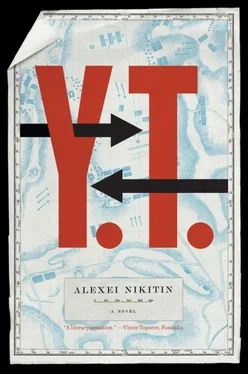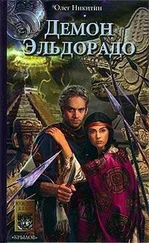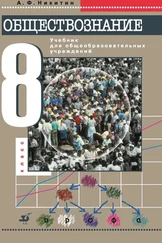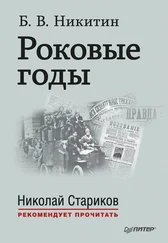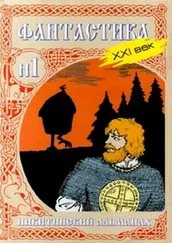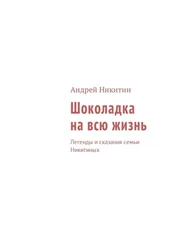Sinevusov poured me some water. ‘Here,’ he said. ‘It’s just your nerves.’ He laughed cautiously. ‘Better now? Let’s finish with the formalities. And part as… friends.’
I don’t know how I would have handled the so-called formalities if he hadn’t made me so angry. I really don’t. Maybe I would have signed whatever he wanted me to sign. If it had got me out of that office, that building, never to return to the damp, hollow silence of its cells. Maybe we really would have parted as ‘friends.’ And met up from time to time—he would have asked me certain questions, and I probably would have answered those questions. Once you say ‘A,’ you spend the rest of your life saying ‘B.’ I don’t know what I would have done if we’d parted company as ‘friends.’ But already the invisible fan behind my back was driving the long grey shadows along the office wall with all its might. A glass of water wasn’t enough to stop the raging machine. The shadows were running before my eyes. The fan was droning its way, officiously and monotonously, up to a clangor that curdled the very air in Sinevusov’s office. Rotation upon rotation it pumped out fury. How do you measure fury? In atmospheres? In pascals? In millimeters of mercury?
He warned me that we were forbidden from playing our game, and should we come across any documents not turned up in the course of the search I must pass them to 33 Volodymyr Street. And to hold my tongue, not talk. I was released the same day. But we did not remain friends. This soon became obvious—and not only to me.
At the same time Kanyuka and Korostishevski got out and Kurochkin and Reingarten. Later on we found an auditorium on the fourth floor of our department and got together to talk. There was a lot to talk about. Although Kurochkin and I had met up immediately, just as soon as we could, without waiting for the others. It was literally the next day. Pallid and plumped up on government grub—they didn’t stint on the portions they brought us from the cafeteria—we lay on Castle Hill in grass already grown high, succulent still and green and unmown. We warmed ourselves in the sun and looked out at Old Kiev Hill, where, according to the academic Tolochko, ancient Kiev had spread from Castle Hill (and not vice versa) sometime in the eighth century. And talked about this and that.
‘It was only the first two weeks.’
‘I thought it was longer.’
‘No, really, it was only the first two weeks that they were serious. By then they could see there was nothing going on. Actually they knew before then. They were just making sure… Ryskalov was straight with me.’
I had Sinevusov; Kurochkin had Ryskalov.
‘Great. You mean they just wanted to play?’
‘Of course. Otherwise they wouldn’t have held on to us for two months. Their usual is two weeks. They toy around with you for fifteen days, and then if it’s not serious they just give you a kick up the ass and off you go.’ Kurochkin made it sound macho somehow: ‘toy around’ and ‘kick up the ass.’ From the heights of Castle Hill our late prison didn’t look quite real. A bit sinister perhaps but not real. And already just a little bit forgotten.
‘Couldn’t they have managed without us? I mean, the rules are easy enough. A schoolboy could learn them in a couple of hours.’
‘Sure they could have,’ Kurochkin laughed merrily. ‘But they’re not schoolboys. They’re secret police, dogs of sovereigns. They’re at work, getting paid by the state. It wasn’t for the game, not the way you understand it. They thought: Hey let’s play with them. And sent a report upstairs: “Everything is under control. We’re conducting a counter-intrigue. We’re investigating the specifics, getting into character.” ’
I remembered how Sinevusov kept nudging my arm at first. ‘Alex,’ he said, ‘come on, let’s get them. We’ve got a bomb, so let’s get them. It’ll be too late when they’ve made a bomb of their own. The time is right.’
Sinevusov always wanted to fight Ryskalov. They were friends. Kind of like Kurochkin and me.
‘They’d better return Itil,’ said Sinevusov, who was trying to wear me down. ‘I mean, it’s our ancient capital, where our roots are and the graves of our ancestors. Or aren’t you Russian, Alex.’
‘We’re Zaporozhians, Citizen Major,’ I reminded him with satisfaction.
‘Whatever,’ he said, dismissing my comment with some irritation. ‘Are we going to get them or not?’
But I ducked it. I had a strategy of my own, and it worked. I didn’t fight, I traded. For example, Slovenorussia was fighting the Holy Russian Empire. I sold tanks and anti-aircraft guns to one, airplanes and self-propelled artillery to the other. An American tactic. I used the money I made to buy up all the plutonium on the world market and build atomic weapons. Not for sale but for me. So no one would think about getting hold of my anti-aircraft guns and airplanes without paying for them. Sinevusov understood soon enough that on my team he wouldn’t get to fight, so instead he incited Kurochkin’s and Kanyuka’s interrogators to fight Korostishevski. In the past this wouldn’t have been possible: Kanyuka/Caliph Al-Ali always sided with Korostishevski/Emperor Karl XX. They had signed a peace treaty. They were allies. But obviously Kanyuka’s interrogator was able to pressure him. He’d found Kanyuka’s Achilles’ heel. The Caliphates invaded the Holy Roman Empire simultaneously in two places, beginning a war for La Mancha and Andalusia while also landing troops in Sicily. Then Kurochkin/Betancourt dispatched twenty-five tank divisions into Gorizia and Aquileia.
Our officers weren’t kidding around; they were really drawn into the game. Sinevusov sat for hours with the cards, working out alternative scenarios on his calculator. His little grey suit jacket from Kiev’s Maxim Gorky clothing factory would be lying on the window ledge, his tie somewhere else—a dark-blue tie with a dash of marine, a gift from his colleagues. Sinevusov would snap his braces, sweat under his arms, wipe his brow and keep on asking, ‘What would you do if they did this? And what would you do if they did that?’
I don’t know how it was with Kurochkin and Ryskalov, but I was the only one playing for the Khanate. Sinevusov may have been afraid to assume personal responsibility even in a game, or maybe there was some other reason, but he only advised. And did he ever advise—obstinately, tediously and wearyingly. But the decisions were made by me. I didn’t fight. I traded. Everything with everyone. The Khanate grew rich and highly developed. However, even though I observed my customary neutrality in the war with the Holy Roman Empire, I supplied arms more willingly to Korostishevski than Kanyuka. I sold him my new anti-aircraft systems on condition that they not be used against Slovenorussia. Only against the Caliphates. Weapons trading was a confidential business, but Sinevusov was sitting there right next to me ensuring that Ryskalov and his comrades were kept up to date. There was nothing I could do about it. I helped Korostishevski however I could; it looked like they were giving him a really hard time. And not just in the game. Above all, not just in the game. But he was withstanding the blows.
And in that war, predatory and unjust, the war of the three majors, Korostishevski only lost Aquileia. That town went to Slovenorussia. Whereas Kanyuka put his people on the Iberian Peninsula in vain. He had wasted his money buying my two rocket cruisers.
Later, sitting up on Castle Hill and looking down at Kiev in May, I knew, with a distinct and vivid certainty, that our biggest problems were behind us and nothing worse would happen. Could there really be something worse than the prison inside the KGB building? Surely not. So it could only get better. There was nothing to fear. But within a week, my recent optimism abandoned me. One week later I knew that anything could happen. And that things could get even worse.
Читать дальше
